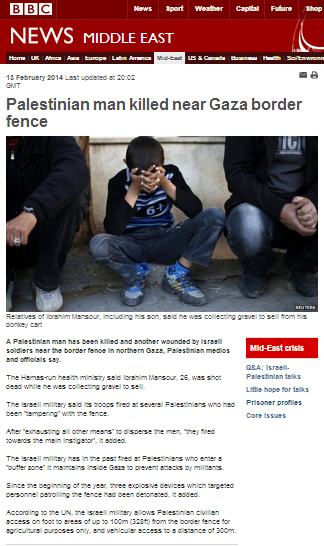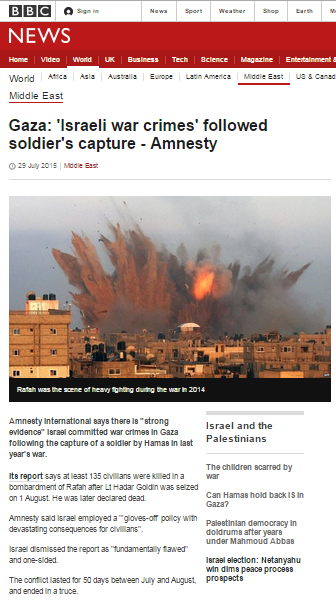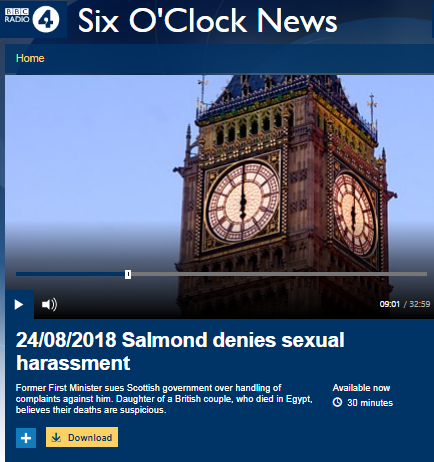On February 13th a report titled “Palestinian man killed near Gaza border fence” appeared on the Middle East page of the BBC News website.
The report relates to an incident which took place earlier in the day at the border between Israel and the Gaza Strip in which a group of Palestinian men approached and tampered with the border fence. After they refused to heed calls to move away from the fence, shots were fired by IDF soldiers guarding the border and two of the men were hit. One of them – named as Ibrahim Suleiman Mansour – died of his injuries.
The BBC’s report on the incident follows the increasingly prevalent practice of presenting audiences with differing accounts of the same incident, with no discernible attempt having been made by BBC journalists to establish the actual facts.
The caption to the photograph at the top of the article reads:
“Relatives of Ibrahim Mansour, including his son, said he was collecting gravel to sell from his donkey cart”.
In the article itself it is stated:
“The Hamas-run health ministry said Ibrahim Mansour, 26, was shot dead while he was collecting gravel to sell.”
According to reports from other sources, the same “Hamas-run health ministry” spokesman – Ashraf al Kidra – also claimed that Mansour had been “collecting scrap metal”.
There is no evidence that the BBC has made any attempt to verify the particular version of the claims which it elected to repeat in this report, as made by the family of the deceased man and by an official from a terrorist organization – none of whom seem to have been present at the location of the incident. Neither, it seems, was any effort made to clarify the question of why Mansour’s body was wrapped in a Fatah flag at his funeral.
The practice of ‘reporting’ on security incidents by merely cobbling together a collection of existing claims from assorted sources – often second-hand ones which have previously been reported by other news agencies frequently relying on local stringers – is of course not conducive to providing BBC audiences with information which will enable them to “build a global understanding of international issues“. Neither can that practice be passed off as an attempt to meet editorial guidelines on impartiality.
The appearance of this article provided an opportunity for the BBC to update its audiences of the subject of the recent surge in terror attacks on Israeli civilians by means missiles fired from the Gaza Strip. That opportunity was not taken up and two separate missile attacks which took place on the evening of the following day (February 14th) have also not been reported by the BBC.
Related Articles:
The BBC’s unhealthy reliance on information from medics in Gaza
Accuracy issues in BBC report on death of Gaza ‘farmer’
In which BBC News abandons all pretence of fact checking
BBC’s Donnison suggests rioters may be farmers… or scrap metal collectors




